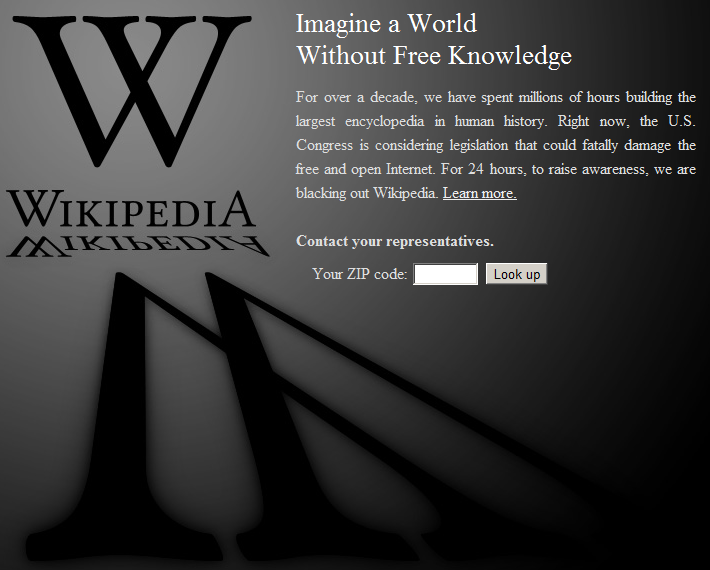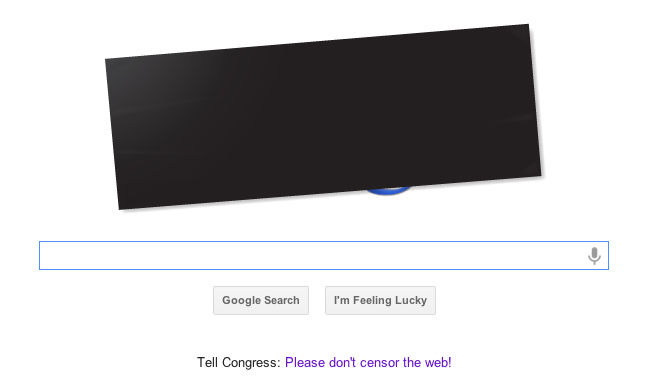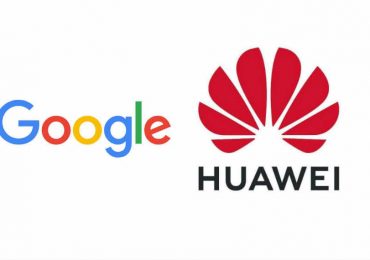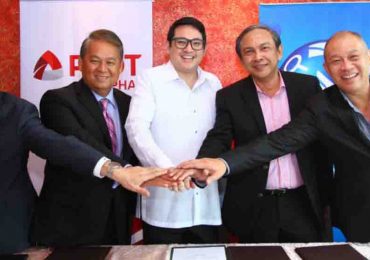The internet experienced what some say is the first blackout of cyberspace when some sites, particularly Wikipedia, decided to suspend its operations due to its objection to two bills, namely the Stop Online Piracy Act (SOPA) and the Protect IP Act (PIPA).
PIPA was first introduced to the U.S. Senate while SOPA was introduced to the U.S. House of Representatives. Lets talk about PIPA first:
PIPA if passed will give U.S. corporations and the government the right to seek affirmative legal action with any website that they see as enabling copyright infringement whether of U.S. origin or not. In other words, they will have the following authority:
- The government can force U.S. internet providers to block access to websites deemed as enablers of copyright infringement
- To sue search engines, blog sites, directories, or any site in general to have the black listed sites removed from their website
- To force advertising services on infringing websites, and those supporting of them, to remove them from their advertising accounts
- The power to sue any new website that get started if they believe that they are not doing a good job of preventing infringement on the website
On the other hand, SOPA, if passed, will provide the government and private corporations the following:
- Force search engines, advertisers, DNS providers, servers, and payment processors from having any contact with allegedly infringing websites
- Allow private corporations to create their own personal hit lists composed of websites they feel are breaking their copyright policies.
- Payment processors will have the power to cut off any website they work with if they believe the site is violating copyrights.

If we are going to look closely on both SOPA and PIPA, we could say that this is a form of censorship, perhaps even worst than censorship. PIPA will penalized content providers while SOPA will penalized web operators, advertisers and ISPs.
Imagine these scenarios: What if a child sings a song and uploaded a video, is that copyright infringement? What if a user posted a picture, a video, quoted a text from a site and posted it on Facebook or Twitter, is that copyright infringement? If yes, then Youtube, Facebook and Twitter will also be penalized under SOPA. Imagine if SOPA and PIPA were to exist now – we will not have a Charice or an Arnel Pineda.
Mark Zuckerberg, Facebook founder has this to say “The Internet is the most powerful tool we have for creating a more open and connected world. We can’t let poorly thought out laws get in the way of the Internet’s development.”
I tend to agree with what Zuckerberg said. There are a lot of vague issues surrounding the web. When do you consider a certain content violating copy infringement? And with the internet containing vast content, how much will be spent just to monitor all the content?
How about those who are doing business on the web? People who use social networking sites to sell their products, do they pay taxes? Should we stop them, too? How about those who import products from various sources and sell them at a much lower cost on the web? Don’t they rob our government taxes and don’t they rob legitimate businesses as well?
Why am I raising these issues? Because it’s not far fetched that our government will apply both SOPA and PIPA into our own laws. Will it curtail innovations? Definitely. And you can expect cases be filed left and right and websites shutting down because of the so-called violations brought about by SOPA and PIPA. I hope this won’t happen.
I am logging off. Stay cool and God Bless us all!
(Article written by Jerry Liao)










